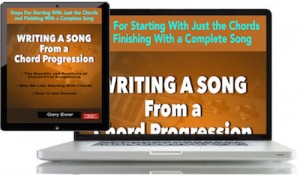It’s interesting that music in pop genres has mainly favoured the tenor male voice. Most songs will sit in either the high baritone or tenor range. I say interesting, because I was reading recently about a recently-completed study that has examined how much we like or are drawn to high or low-pitched speaking voices.
You can read the abstract here. The research shows that when it comes to the pitch of the male voice, we are more attracted to low-pitched ones as being more trustworthy. For female voices, we tend to have a similar reaction, but it really depends on what they’re talking about.
In other words, we tend to trust a low-pitched male speaking voice, regardless of the topic. With women’s voices, context is important: we’re more discerning.
Of course, they aren’t talking about the singing voice in this study, but it begs the question: Why are most songs, sung by men in the past several decades of pop music, written for the tenor voice? What are we looking for in a singer that gets fulfilled by a high-pitched voice over a lower-pitched one?
 If you consider yourself more of a chords-first songwriter, get Gary’s eBook, “Writing a Song From a Chord Progression“. It describes the pros and cons of starting a song with the chords, and gives you a useful set of procedures for getting the job done. READ MORE
If you consider yourself more of a chords-first songwriter, get Gary’s eBook, “Writing a Song From a Chord Progression“. It describes the pros and cons of starting a song with the chords, and gives you a useful set of procedures for getting the job done. READ MORE
I think the answer lies in what we find to be most important and compelling in music: the display and communication of emotion.
It’s much easier for an audience to empathize with and feel the emotion of a singer when that singer is producing notes high in their range. High-range singing does several things:
- It generally displays a kind of strain that audiences equate with emotional intensity.
- It usually requires louder singing, which in turn demands attention from the audience.
- It provides a contrast to whatever lower-pitched singing might have been happening before the higher notes.
Most songs are written in some kind of verse-chorus format, and it’s typical for verses to feature lower-range singing than the chorus. That’s because verses generally outline a story or describe a situation, and it’s important to keep emotional reactions to a minimum at this point.
The chorus is higher in pitch because it embellishes the emotional outpouring necessary to make a connection to the audience. Those higher notes may even sound strained, but we accept those imperfections as an important part of communication.
A great example of how the strain of the high tenor range can be completely acceptable would be in Nirvana’s “Smells Like Teen Spirit“, with it’s low-mid range verse, switching to its screaming, generally high-pitched chorus.
High singing, especially the kind demonstrated in that song, can be risky. It requires technique and careful warming-up and preparation. And it probably favours younger singers over older singers.
Fortunately, you get the same positive effect of higher-versus-lower singer even if you aren’t in the screaming range of your voice. Simply creating a chorus with a note or two that exceeds the range of the verse is usually enough to draw special attention to the higher emotional content of the chorus.
And just to give you something else to think about: Higher-pitched choruses aren’t an absolute necessity. We know that there are songs that use the same (or very similar) melody for the verse and the chorus.
If you’ve written a song that uses the same melody for the verse and chorus, you will need to find other ways to power up the chorus, including 1) building the instrumentation, 2) adding vocal harmonies to the chorus, and/or 3) changing the key to something higher.
 Written by Gary Ewer. Follow Gary on Twitter
Written by Gary Ewer. Follow Gary on Twitter
 Gary’s 10-eBook Bundle (the “Deluxe Bundle”) gives you what amounts to a crash course in everything you need to know about songwriting. Right now, that bundle is being offered at a discount price. Read more.
Gary’s 10-eBook Bundle (the “Deluxe Bundle”) gives you what amounts to a crash course in everything you need to know about songwriting. Right now, that bundle is being offered at a discount price. Read more.











I think you’re spot on regarding the sound of straining to reach a note towards the extreme of a singer’s range as creating an emotionally charged mood. It’s interesting that singing the same high note in falsetto (which doesn’t require a strained reach) will lack that particular impact but can sometimes be effective in creating a different, but also effective mood depending on the song. Not usually as emotionally charged though
Jeah! You’ve got the inspiration Gary! 😉
Pingback: Gary Ewer – Getting Attention Using Your Vocal Range – 4-29-16 | I Write The Music